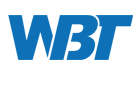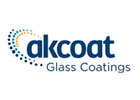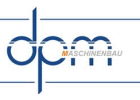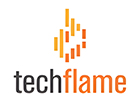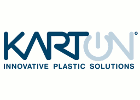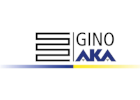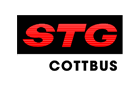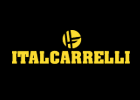Meyer Burger: Annual results 2021 reflect successful transformation into PV cell and module manufacturer
Meyer Burger is on course to become a European leader in a new global era of photovoltaics. Launch of the company’s heterojunction cell and SmartWire module manufacturing sites in Germany was completed in a highly ambitious timeframe.
Sweeping changes to future international energy supply after the Russian invasion of Ukraine highlights the need for an accelerated expansion of renewable energy in relevant markets for Meyer Burger including strategic independence through local solar cell and module production.
Financial results for the transformational year 2021 also reflect operational challenges throughout the year.
The balance sheet total increased to CHF 492.7 million, while net sales declined to CHF 39.9 million, resulting in an EBITDA of CHF -72.5 million and an annual result of CHF -100.5 million. The cash position as of year-end was CHF 231.4 million.
Expansion to 1.4 gigawatt (GW) cell and module capacity is underway at the Thalheim and Freiberg sites in Germany and in Goodyear, Arizona (USA).
In light of strong customer demand and the supportive political environment, Meyer Burger is working on an acceleration of its expansion plans, driven by faster growth in the utility-scale sector. To this end, Meyer Burger is pursuing long-take offtake arrangements including an investment contribution from offtakers. A memorandum of understanding has been signed with a major U.S. utility-scale customer.
With the launch of its cell and module manufacturing sites in Thalheim (Bitterfeld-Wolfen, Saxony-Anhalt, Germany) and Freiberg (Saxony, Germany) as well as its successful market entry, Meyer Burger achieved its strategic goals for 2021. The company has successfully transformed itself from a high-tech production equipment provider into an integrated manufacturer of high-performance solar cells and modules based on a captive business model and underlying technological autonomy. The current global economic and political situation is highly challenging, but has at the same time strongly increased momentum for photovoltaics in general and the renaissance of the European and U.S. photovoltaics industry.
Financial results reflect the ongoing transition and manufacturing ramp-up
The results of the financial year 2021 reflect the transformation of the business model. Consolidated net sales declined to CHF 39.9 million (2020: CHF 90.5 million), of which CHF 8.8 million come from the first sales of 20 megawatt (MW) of PV modules. Operating income after costs of products and services was CHF 29.2 million (2020: CHF 37.9 million).
With the manufacturing ramp-up, the net number of employees increased, resulting in personnel costs of CHF 60.4 million (2020: 53.9 million). Operating expenses increased to CHF 41.2 million (2020: 28.5 million), primarily driven by additional new infrastructure costs, such as rent and energy, marketing expenses as well as fees and expenses in relation to the financing raised in 2021. EBITDA was CHF -72.5 million (2020: CHF -44.6 million). The new production machinery only affected depreciation starting in the second half of 2021. Accordingly, EBIT stood at CHF -85.3 million (2020: CHF -58.1 million and the net result at CHF -100.5 million (2020: CHF -64.5 million), corresponding to earnings per share of CHF 0.04 (2020: CHF -0.04).
As of December 31, 2021, the balance sheet total increased to CHF 492.7 million (December 31, 2020: CHF 296.8 million), reflecting the investments made in the ramp-up of the two new facilities as well as the successful financing measures that were implemented. The group had a strong cash and cash equivalents amount of CHF 231.4 million (2020: CHF 139.8 million), which is available for funding the necessary future investments. Trade working capital remained stable at CHF 33.4 million (2020: CHF 32.7 million), with higher inventories approximately balancing out higher trade payables compared to 2020.
Around 30 direct customers and more than 500 registered installers
Demand in the residential and small commercial rooftop segment, which has been Meyer Burger’s priority segment, has developed strongly. The company is sold out for almost the entire first half of 2022, with pricing meeting expectations. From the first day of production, the modules have satisfied the highest quality requirements. Meyer Burger is recognized as a premium brand by distributors, installers and customers and is already well positioned in its focus markets, with particularly strong demand in the company’s home market of Switzerland. More than 45 sales and marketing team members represent the company in major European markets and the U.S., serving around 30 direct customers and over 500 registered installers in Europe alone.
Delays in ramp-up of production
The COVID-19 pandemic materially affected the transformation and the production ramp-up. Short-term, unexpected supply bottlenecks delayed the start of production in the summer of 2021. Substantially higher than usual staff absences forced Meyer Burger to reduce the output of new solar module production in the fourth quarter of 2021 and the beginning of 2022.
Overall, the ramp-up was slower than originally expected and thus affected the achievement of the company’s operational targets for 2021. The corresponding ramp-up costs and the incomplete absorption of production overhead negatively impacted the company’s gross margin.
Expansion to 1.4 gigawatts and new products ready in 2022
The expansion to 1.4 GW annual production capacity at the Thalheim cell manufacturing site and 1 GW at the Freiberg module manufacturing site is ongoing. For the U.S. production site in Goodyear, Arizona, factory planning is in progress. The annual production capacity in the U.S. will initially be 0.4 GW and is expected to become available in 2023; the existing infrastructure in Goodyear will allow seamless expansion to 1.5 GW solar module manufacturing.
The ramp-up of the 1 GW Freiberg module capacity is scheduled for completion in Q4 2022. At this point, we expect a clearly positive operating result on a run-rate basis. Taking into account the ongoing ramp-up conditions in Thalheim and Freiberg, we expect to produce a total module volume of 0.5 GW in 2022. There is a residual risk that ramp-up and production plans may be affected by the current severely distressed global supply chain situation, although Meyer Burger is actively managing such risks.
Meyer Burger also plans to launch new products for the commercial & industrial customer segment in 2022. The realization of initial solar roof tile pilot customer projects is expected in the second half of 2022, as originally planned.
Outlook
To overcome the dependency on fossil energy imports, the deployment of photovoltaics in Europe needs to be boosted – and not only to mitigate climate change. There is also a growing consensus that the necessary higher level of strategic autonomy can only be achieved with a strong European PV industry. In addition, customers are increasingly asking for high-performance products made locally and in a highly sustainable manner.
In this context, Meyer Burger is confident about the next, potentially accelerated expansion phases. As a European, integrated, technologically autonomous PV specialist that is ready to scale up, Meyer Burger is uniquely positioned in this respect. Similarly, the U.S. market offers enormous potential for further expansion.
Therefore, we are working on an acceleration of the expansion plans we originally communicated, which foresaw a pause on expansion in 2023, followed by moderate growth to 7 GW by 2027. This new initiative also includes the strategic safeguarding of supply chains for necessary materials and components. Due to the high scalability of demand in the utility-scale segment, Meyer Burger intends to accelerate its growth in this market segment.
To facilitate the accelerated ramp-up, Meyer Burger is pursuing long-term offtake agreements with major project developers, independent power producers and utilities, which would simultaneously provide Meyer Burger with a contribution to the investment required for expanding. This potential new model enables faster scaling, while reducing capital intensity for Meyer Burger.
Meyer Burger is currently in discussions with a number of interested offtakers. On March 23, 2022, Meyer Burger signed a memorandum of understanding (MOU) with a major U.S. renewable energy developer and operator. The nonbinding MOU stipulates a multi-year offtake with a multi-GW aggregate volume, for which Meyer Burger would build a dedicated cell and module production line. At the same time, the customer would provide a financing contribution to fund parts of the required initial investment and would make annual prepayments for future module supply.
In light of the intended acceleration of the expansion plans, Meyer Burger is currently revising its previously communicated guidance. The adjusted guidance is expected to be communicated no later than with the half-year results in August 2022.




